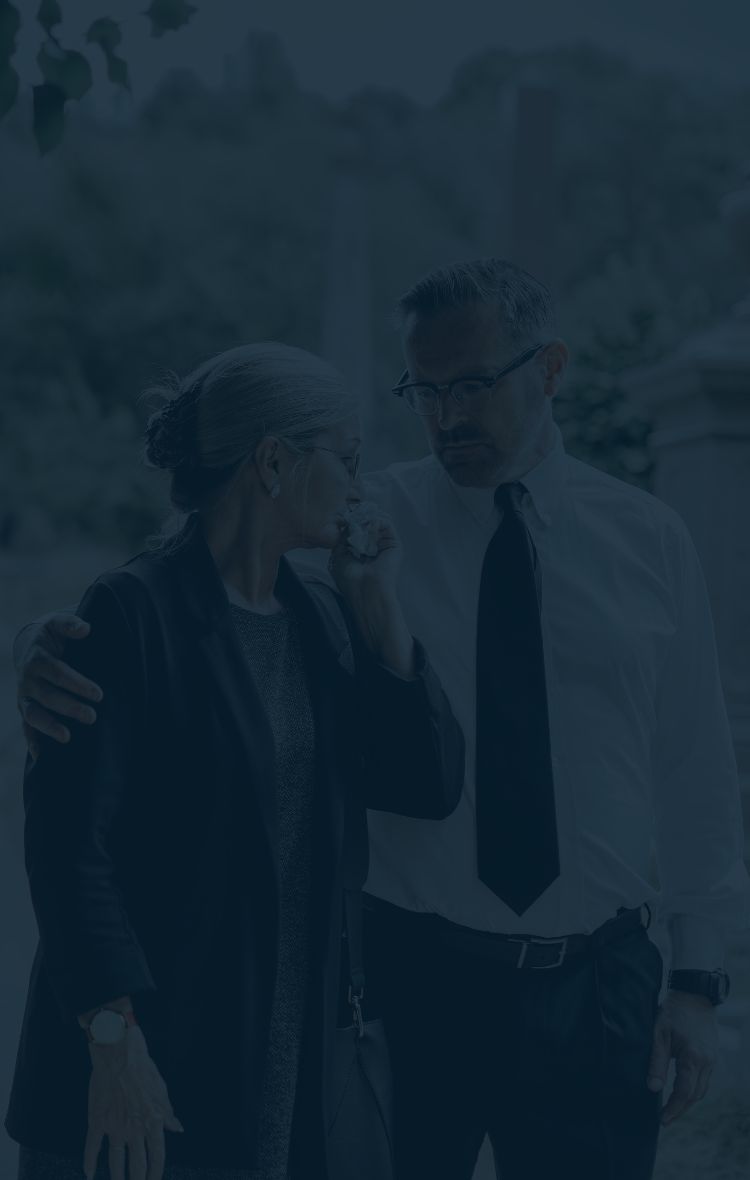The loss of a loved one can be one of life’s most devastating experiences. When this death is caused by the negligent act of another person it is known as a fatality claim or wrongful death. If your family member died in a fatal car accident or as a result of another person’s negligent act, the lawyers of McLeish Orlando are available to help.
Contact Our Firm TodayWhen a loved one is killed due to someone else’s wrong, it may require a wrongful death lawsuit to be started. No money will ever restore the loss a family suffers when they lose a loved one. However, the lawsuit may help find answers as to why it happened, how it could be prevented, and hopefully bring change so others are not killed in the same way. A lawyer experienced in wrongful death cases will understand the issues and will help guide the family through this difficult process. Essential to this is ensuring the right legal team is in place.


It is a very difficult time whenever a loved one is taken away. Taking steps to bring a wrongful death claim is not easy nor should it be taken if it has a low chance of success.
To determine if such a claim will have success depends on various things. Questions the lawyer and the family will consider:
The wrong done by an individual or company does not need to be criminal or intentional. Many wrongful death cases involve situations where the Defendant did not mean nor intend to hurt or kill the person.
Who pays the compensation in Wrongful Death Claims?
When a loved one is killed in a car crash, bike crash, ski doo crash, ATV crash, worksite accident, a recreational sport, during medical care, at daycare, while swimming, or elsewhere, information should be gathered to find out what happened. This information will come from various sources and an experienced lawyer who has dealt with a similar case will know where to look.
The lawyer will use different resources to help the family with the initial inquiry. Inquiries and information gathering in a wrongful death case may include:
Whenever someone is killed due to a wrong by another, the court will award an amount of money to certain family members for the loss of their loved one. Under the laws in Ontario, only certain family members can make a claim in a wrongful death lawsuit.
To bring a claim for a spouse, one does not need to be married. As long as they are seen to be common-law spouses under the law, they can make a claim. This is a legal question and the lawyers will ask questions to determine if you will meet the definition. As well, stepfamily members can also bring claims
There are different types of compensation (damages) awarded when one loses a loved one. They can include:
An experienced wrongful death lawyer will work in ensuring that your damages (compensation) are proved to either the insurance company or at court.
In doing so, they will gather evidence such as:
The wrongful death lawyers at McLeish Orlando have taken on and won a wide variety of wrongful death cases across Ontario. The cases have included people who lost their lives in car crashes, trucking accidents, nursing homes, daycare, boating, medical malpractice, occupiers, products liability, ATV crashes, snowmobile crashes, drowning, day camps, recreational facilities, and other incidents where someone is wrong resulted in the loss of a loved one.
The lawyers at the firm do not work volume and select specific cases to ensure they give these cases the care and attention needed.
Whether it is one of their high profile cases or not, the McLeish Orlando team of personal injury lawyers, staff and resources are committed to ensuring that person whose life is lost and their family is given the respect and attention it deserves and that justice is obtained and any changes needed are advanced to ensure others are not unnecessarily killed.

A wrongful death action is when family members of a loved one begin a lawsuit against people or companies who caused the death. Typically, family members will be claiming the loss of care, guidance, and companionship, loss of dependency, loss of services, mental distress, and sometimes punitive damages.
You have until two years from the time that the event took place that led to the loved one’s death to sue the responsible parties. This is called a limitation period. Legal advice should be sought to help you understand when the limitation period begins to run.
The Family Law Act is engaged and determines who can sue and what they can sue for. The family members that can sue include spouses, common-law spouses, parents, children, grandparents, grandchildren, siblings, and step relatives.
In civil actions, the loved ones of a deceased person are suing those people or companies that caused the death. They sue for an amount to compensate them for their loss. In criminal or provincial offenses, the police will lay charges that are prosecuted by the Crown or Provincial prosecutor. Plaintiffs’ counsel in civil actions are not allowed to participate in criminal/provincial offences cases and usually need to wait for those to resolve before they can proceed in their civil lawsuits.
Punitive damages are recoverable in wrongful death actions. Instead of seeking to compensate the victim’s family, these awards are meant to punish the person or company for the death based on their egregious or reprehensible conduct. When determining whether punitive damages should be paid, not only is the conduct of the person considered, but the court will also consider any other punishments that have been handed out in criminal proceedings.
The time limit on filing a wrongful death action is two years from the date of the person’s death. This is called a limitation period.
At McLeish Orlando Lawyers LLP, we make sure that wrongful death actions are pursued and settled as fast as reasonably possible to ensure that our clients can obtain compensation and move on with their lives. We understand that wrongful death cases are particularly difficult as it involves the death of a loved one. The longer a lawsuit goes on, the harder it is for their loved ones to move on from such a tragic moment in their lives.

If you’ve lost a loved one as a result of the negligence of another person, please contact McLeish Orlando’s team of personal injury lawyers on our toll-free number for a free consultation.
To start your free consultation, fill out the form Or call us 24/7 at 1-866-685-3311